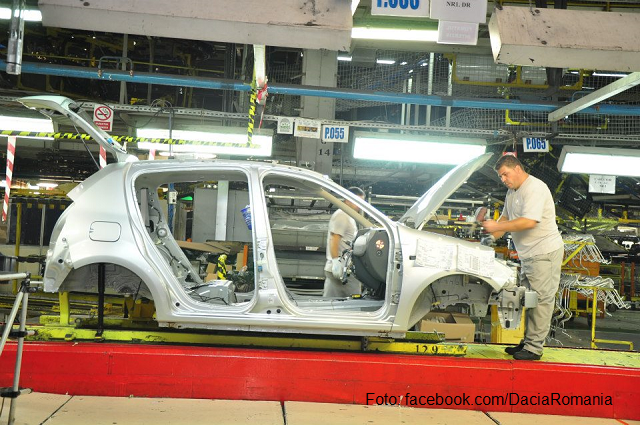Dacia and Ford reopen factories in Romania
Dacia and Ford car factories in southern Romania to restart work in special conditions, more than a month since workers were furloughed because of Covid-19.

Corina Cristea, 04.05.2020, 14:00
The European
Automobile Manufacturers’ Association estimated at the end of April that the
measures taken at European level because of the coronavirus pandemic would
affect over 1.1 million people in the car making industry, with production losses
because of factory shutdowns expected to exceed 2 million cars. The data for
Romania pointed to the loss of at least 20,000 jobs and production losses of
almost 69,000 cars. The local car production was gathering pace in February,
with an annual growth of almost 8% compared with the same month last year and a
rise of around 3% in 2019, says Elena Geageac, a Deloitte Romania consultant,
adding that this sector accounts for 37% of Romania’s exports.
The car
industry is one of the worst hit economic sectors in Romania, with the two
biggest local manufacturers, Dacia and Ford, suspending work in the second half
of March after the declaration of a state of emergency over Covid-19. At the
same time, car parts manufacturers working with these two factories and others
from abroad, have also reduced or temporarily suspended work. The resumption,
even gradual, of work at the Dacia factory in Mioveni and the Ford factory in Craiova
has been eagerly awaited by the employees of the two companies who had been
furloughed. In Mioveni, the French car maker Renault decided to resume work
progressively beginning on the 21st April at two factories, with
part of the workforce, with the rest going back to work on 4th May. The
US car marker Ford also resumed work in a single shift on this date, at the
same time as its factories in Germany and Spain. Half of the 6,000 workers went
back to work with enhanced protection measures being put in place, just like in
Mioveni.
While
the factories were shut, measures were established and implemented to protect employees
when they resume work. These measures have to do with hygiene and security and have
to be strictly enforced, with employees being informed of the need to respect
the decisions taken to protect their health and that of their colleagues. Such
measures include the installation of thermal scanning devices at every entrance
to the factory, wearing face masks and maintaining the recommended physical
distance between workers. Employees are ensured access to the necessary cleaning
and disinfecting substances and efforts are also being made to ensure that travelling
to and from work is done safely.






























